NMUN
National Model
United Nations
Dal 4 all'11 Aprile 2025
NMUN è la più grande e prestigiosa simulazione ONU che si svolge a New York rivolta agli studenti universitari. Nella Grande Mela, a due passi da Times Square, più di 5.000 studenti provenienti da 130 paesi del mondo si danno appuntamento ogni anno per confrontare le proprie idee e definire nuove strategie. Durante il Model United Nations, gli studenti si confrontano in lingua inglese con altri coetanei provenienti da altri paesi del mondo, utilizzando le regole di procedura delle Nazioni Unite e affrontando gli stessi temi che i veri ambasciatori discutono all’interno del Palazzo di Vetro ogni giorno. I lavori sono coordinati dallo staff internazionale del NCCA (National Collegiate Conference Association).
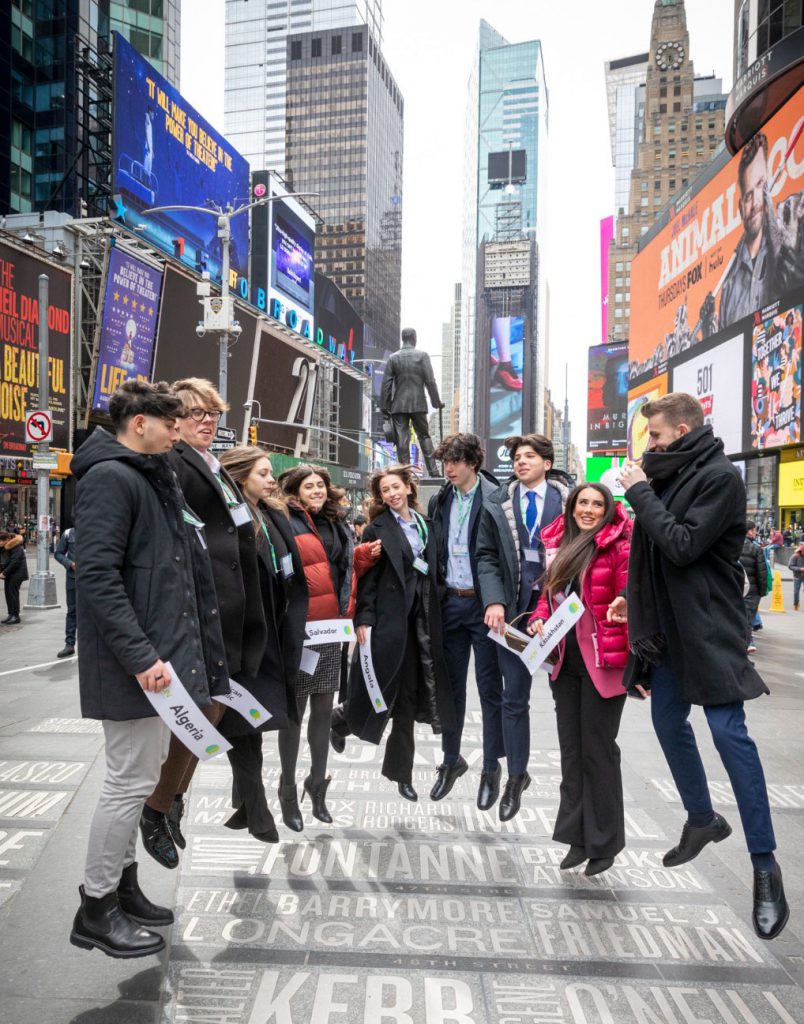
La preparazione
Per affrontare al meglio la simulazione, gli studenti, nei mesi precedenti la partenza, partecipano al Delegate Training Course. Tutte le nostre lezioni sono interattive e si svolgono in lingua inglese. Il Delegate Training Course si articola in quattro lezioni. È possibile partecipare al corso anche in modalità e-learning. Gli studenti partecipanti, oltre a vivere un’intensa esperienza formativa durante la simulazione, avranno l’opportunità di incontrare i diplomatici che lavorano presso le Rappresentanze Permanenti (mission briefing).

Partenza dall’Italia e arrivo a New York. Trasferimento in bus per l’hotel (Hilton Midtown New York).
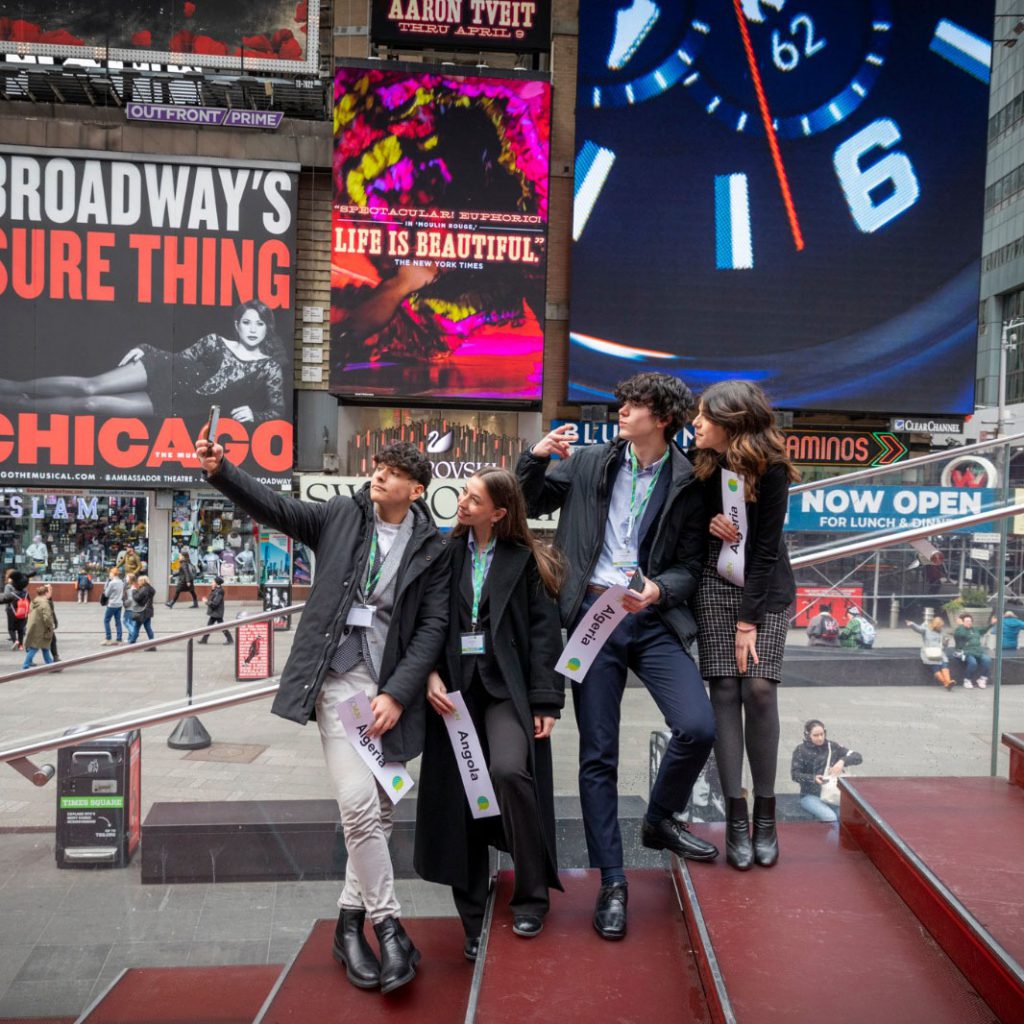
Siamo nel cuore di Manhattan. La giornata è libera, avremo la possibilità di godere delle luci di Times Square, passeggiare lungo la Fifth Avenue e rilassarci nel polmone verde di New York: Central Park.
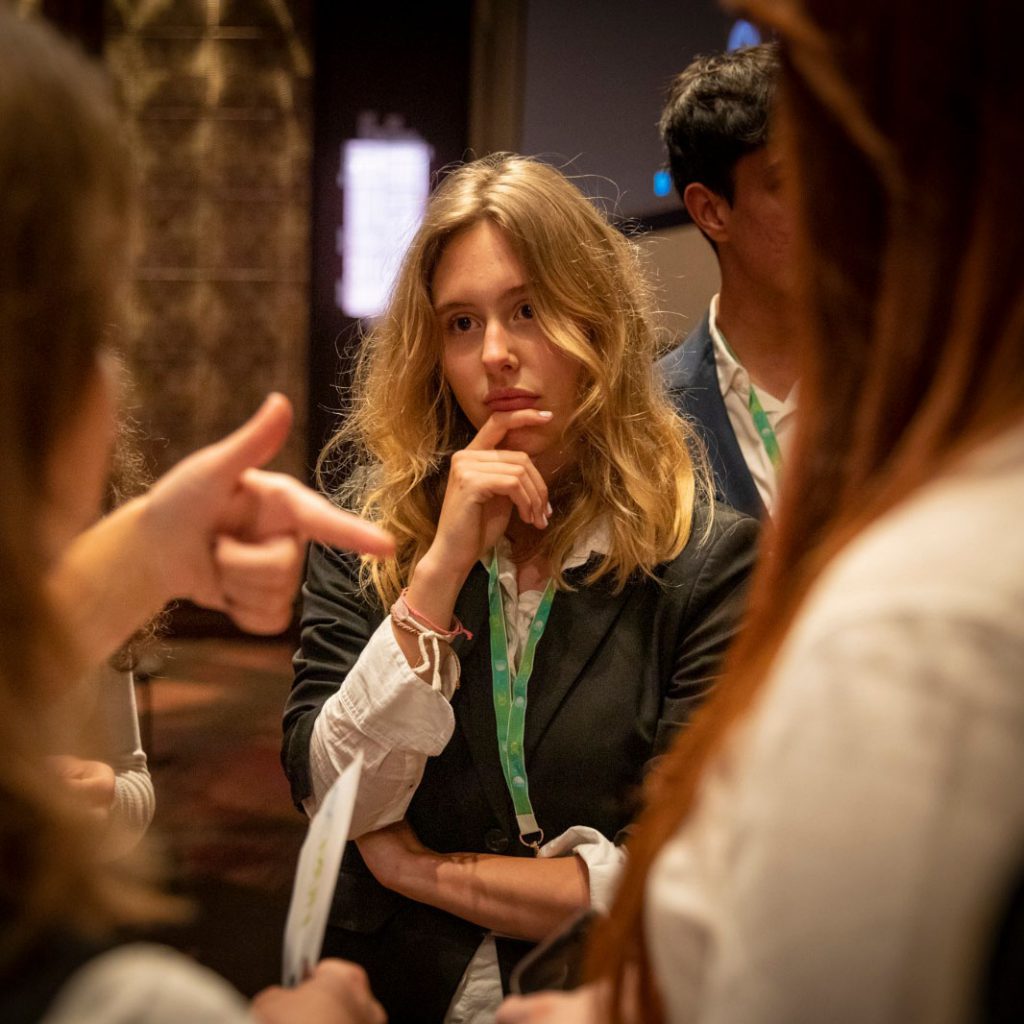
La mattina sarà a vostra disposizione per visitare il resto della città. Nel pomeriggio inizia ufficialmente NMUN! Dopo aver partecipato alla Opening Ceremony, affronterai la prima Committee Session.
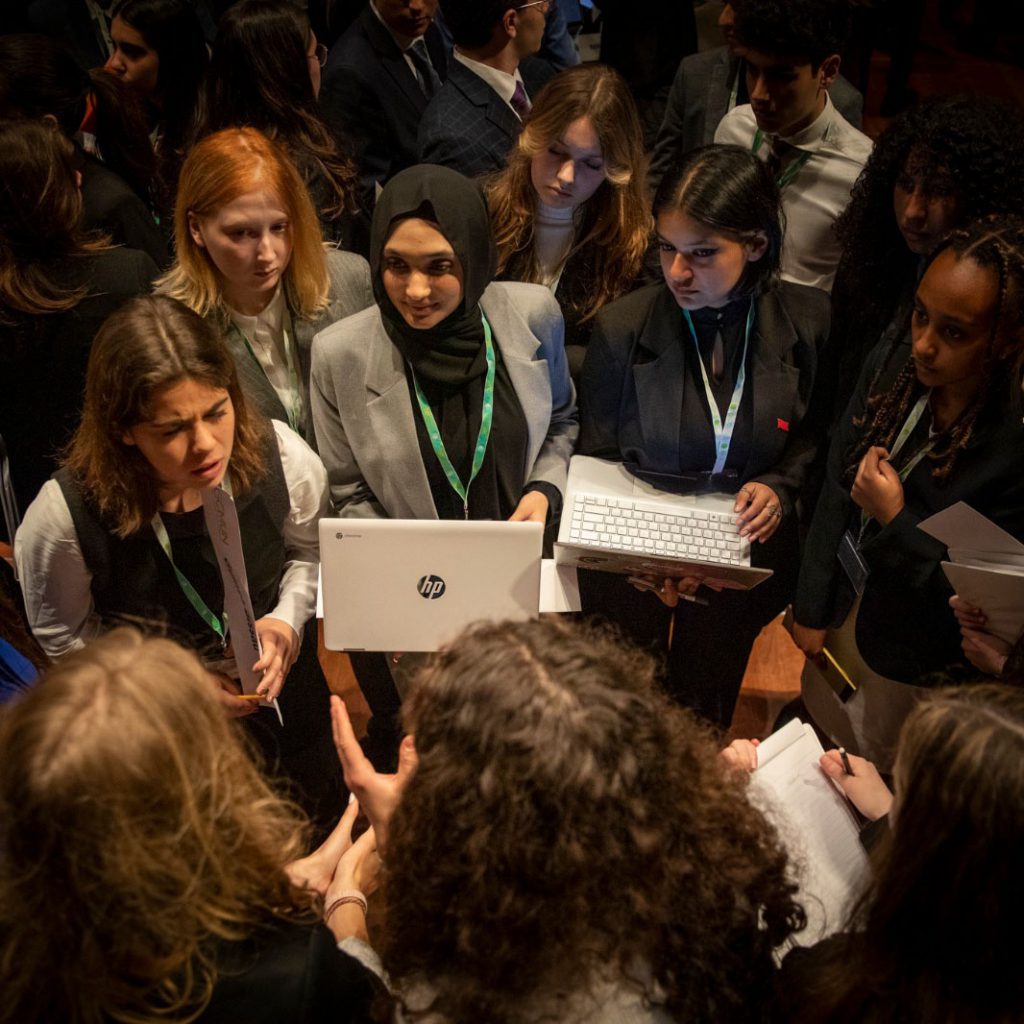
Anche questa mattina sarà a vostra disposizione per perdervi nelle strade della Grande Mela. Nel pomeriggio sarai impegnato in altre due committee session.
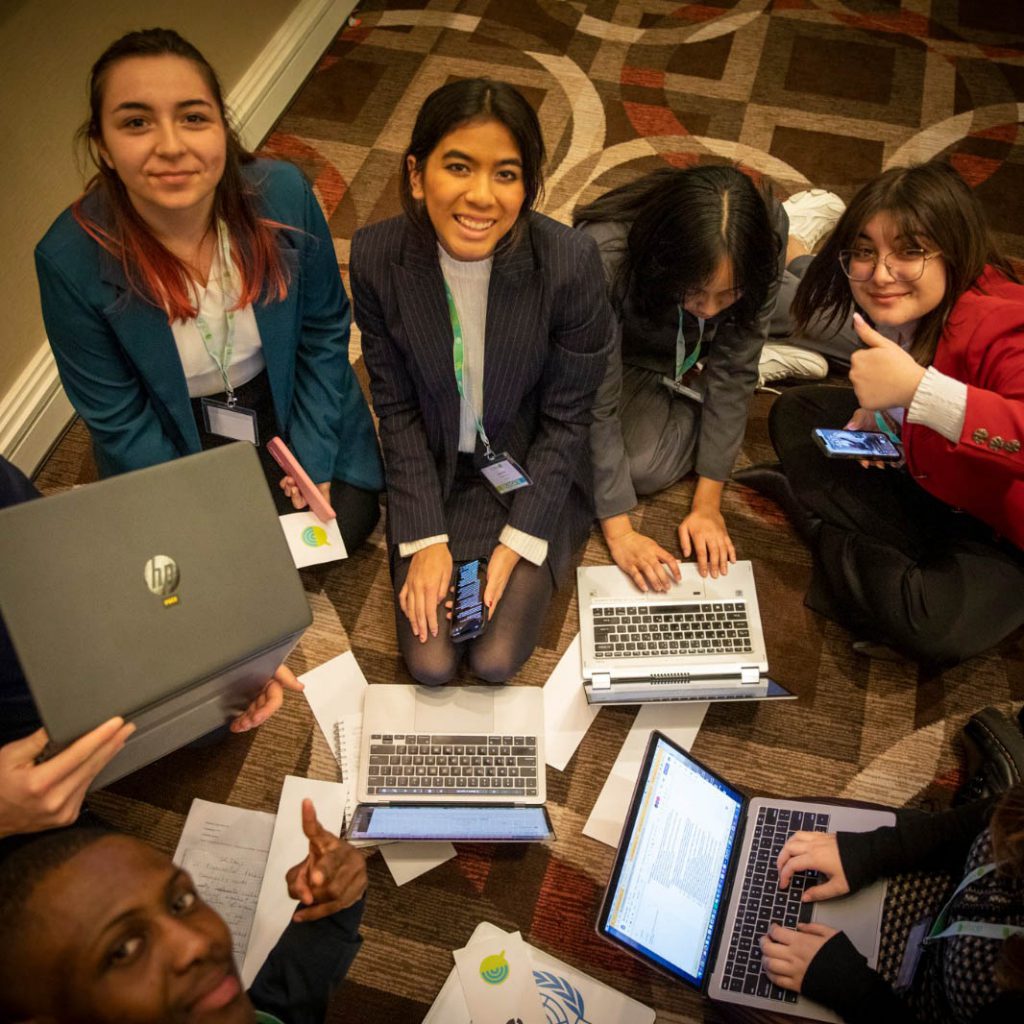
Giornata intensa di lavoro. Sono previste tre Committee Session. Se non hai ancora avuto l'occasione di effettuare il tuo primo speech in commissione, questo è il giorno giusto!
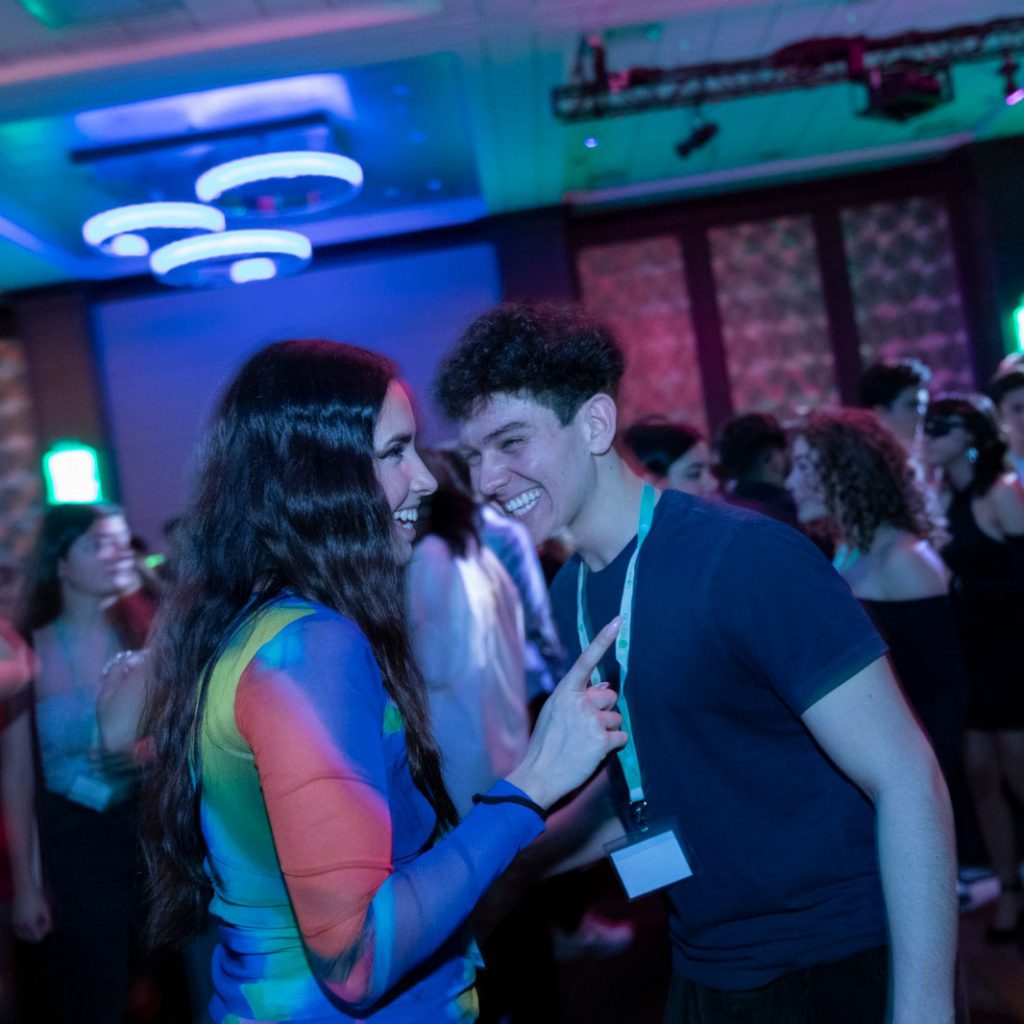
Dopo le ultime due committee session, corri a prepararti per la Delegate Dance, una grande festa con tutti gli studenti partecipanti al Model United Nations.
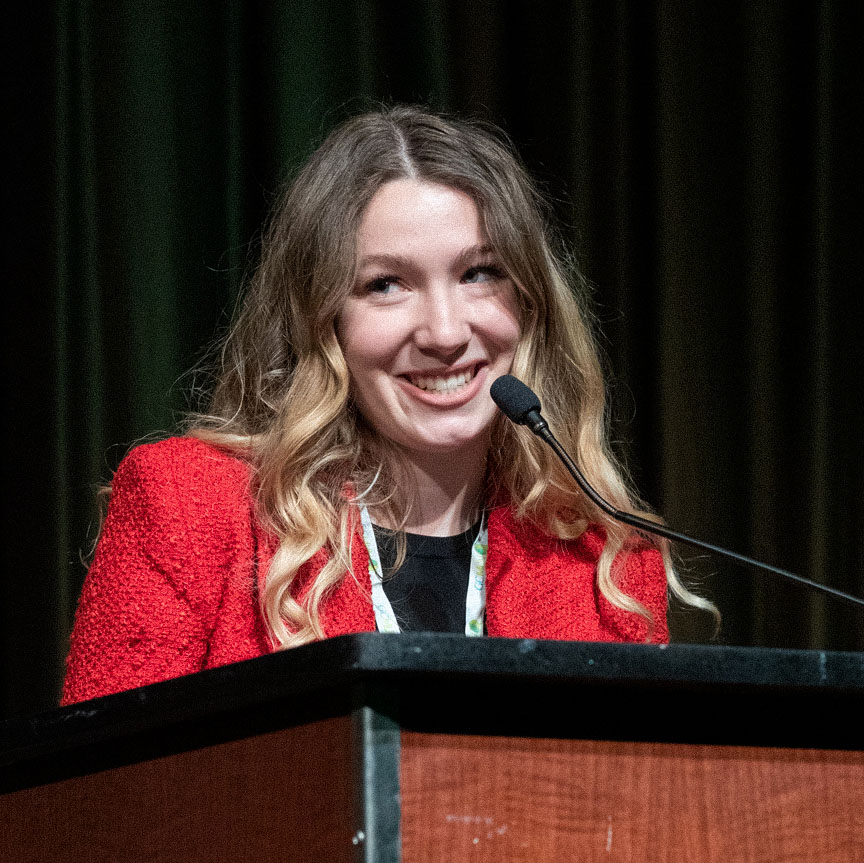
Nel Day 7 si svolgerà al mattino la cerimonia di premiazione in una grande Plenary Session. Nel pomeriggio, tutti alla scoperta degli ultimi segreti di New York. Ti suggeriamo di godere della vista di NY dall'alto dell'Empire State Building

È il momento di preparare le valigie, ma non prima di goderti l'ultima mattinata nella Grande Mela e scattare l'ultima foto a Times Square. Successivamente raggiungeremo l'aeroporto e si partirà per l'Italia.

È stata un'esperienza fantastica! NMUN-New York termina qui, con il rientro in Italia. Ci salutiamo con le immagini di New York ancora negli occhi e la speranza di rivivere insieme anche il prossimo anno questa avventura.
NMUN - FAQ
Le risposte che cerchi
Possono prendere parte a NMUN tutti gli studenti iscritti alle Università italiane.
Puoi iscriverti online cliccando sul seguente link.
I costi di partecipazione a NMUN sono indicati nel materiale informativo distribuito presso le Università. È possibile richiedere maggiori informazioni inviando una e-mail a info@unitednetwork.it o chiamando la nostra sede.
Il progetto National Model United Nations si svolge in lingua inglese.
NMUN - FAQ
Possono prendere parte a nMUN tutti gli studenti iscritti alle Università italiane.
La partecipazione degli studenti alla simulazione è a numero programmato. Gli studenti che non completeranno l’iscrizione nei tempi richiesti saranno collocati in lista d’attesa.
I costi di partecipazione a NMUN sono indicati nel materiale informativo distribuito presso le Università. È possibile richiedere maggiori informazioni inviando una e-mail a info@unitednetwork.it o chiamando la nostra sede.
Il progetto National Model United Nations si svolge in lingua inglese.